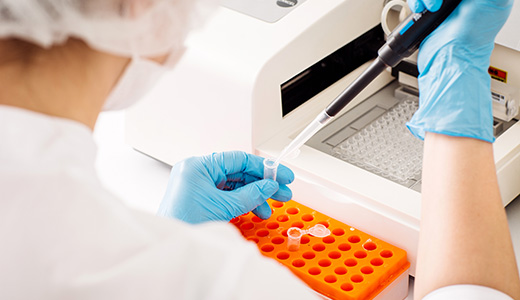Understanding Oligonucleotide Services: A Cornerstone of Modern Molecular Biology

Introduction
Oligonucleotides are short, single-stranded fragments of nucleic acids that play a critical role in various molecular biology applications. These synthetic sequences of DNA or RNA, typically ranging from 2 to 200 nucleotides in length, are invaluable tools in research, diagnostics, and therapeutics. As the demand for oligonucleotide-based applications continues to grow, specialized oligonucleotide services—including DNA/RNA modification—have emerged to support researchers and organizations in their endeavors. This article explores the various aspects of oligonucleotide services, highlighting their importance, applications, and the technologies that underpin them.
What Are Oligonucleotide Services?
Oligonucleotide services encompass a range of offerings related to the synthesis, purification, and analysis of oligonucleotides. These services are typically provided by specialized companies and laboratories that leverage advanced technologies and expertise in molecular biology. Key services include:
Custom Oligonucleotide Synthesis
This is the core service offered by most providers. Researchers can order custom-designed oligonucleotides tailored to specific sequences, lengths, and modifications. Synthesis can be performed for DNA, RNA, or modified oligonucleotides, depending on the project requirements. This flexibility allows scientists to design oligonucleotides to meet the unique demands of their specific experiments.
Gene Synthesis Service
This specialized service allows for the creation of longer DNA sequences that can be used in various applications, including gene cloning, protein expression, and synthetic biology projects. The ability to synthesize complete genes opens new avenues for research in gene function and regulation.
Oligo Pool Synthesis
This approach enables the simultaneous synthesis of multiple oligonucleotides in a single reaction. It is particularly useful for high-throughput applications, such as next-generation sequencing and array-based experiments. Oligo pool synthesis significantly reduces costs and time, making it an attractive option for large-scale studies.
Purification and Quality Control
After synthesis, oligonucleotides undergo purification processes to remove any impurities or truncated sequences. Common purification techniques include high-performance liquid chromatography (HPLC) and polyacrylamide gel electrophoresis (PAGE). Quality control measures, such as mass spectrometry and absorbance measurements, ensure that the final product meets the desired specifications, which is crucial for experimental reliability.
Modification Services
Oligonucleotides can be chemically modified to enhance their stability, binding affinity, or functionality. Common modifications include fluorescent labeling, the addition of phosphorothioate linkages, and the incorporation of locked nucleic acids (LNAs) or peptide nucleic acids (PNAs). Service providers often offer tailored modification options to meet specific experimental needs, including peptide-oligonucleotide conjugation for creating bioconjugates that combine the properties of peptides and oligonucleotides. Notably, custom TaqMan probe synthesis enables researchers to design specific probes for real-time PCR applications, enhancing the sensitivity and specificity of their assays.
Scale-Up and Bulk Production
For large-scale research projects or commercial applications, many providers offer bulk synthesis options. This allows researchers to obtain larger quantities of oligonucleotides at a reduced cost per unit, facilitating extensive studies or clinical applications that require significant amounts of material.
Analytical Services
In addition to synthesis, companies may provide analytical services to characterize oligonucleotides. These can include sequencing, melting temperature analysis, and functional assays to determine the efficacy of the oligonucleotides in various applications. Such analytical capabilities are essential for validating the performance of oligonucleotides in experimental contexts.
Applications of Oligonucleotide Services
Oligonucleotide services serve a wide array of applications across different fields of research and industry. Some of the notable applications include:
Research
In basic research, oligonucleotides are extensively used as primers in polymerase chain reactions (PCR), probes for hybridization assays, and as tools for gene editing using CRISPR technology. Their versatility allows researchers to explore genetic sequences and functions in depth.
Diagnostics
Oligonucleotides are essential components in molecular diagnostics, such as real-time PCR assays for pathogen detection, genetic testing, and personalized medicine applications. Their ability to specifically bind to target sequences enables accurate detection of nucleic acids, which is crucial for disease diagnosis and monitoring.
Therapeutics
The rise of oligonucleotide therapeutics, including antisense oligonucleotides (ASOs) and small interfering RNAs (siRNAs), has revolutionized treatment strategies for various genetic disorders. Companies providing oligonucleotide services often collaborate on the development of these innovative therapies, paving the way for next-generation treatments and personalized medicine approaches.
Synthetic Biology
In synthetic biology, oligonucleotides are used to construct gene circuits, create synthetic organisms, and engineer metabolic pathways. Oligonucleotide services are crucial for providing the necessary building blocks for these complex projects, enabling the design of novel biological systems and pathways.
Choosing an Oligonucleotide Service Provider
When selecting an oligonucleotide service provider, researchers should consider several factors:
Quality and Purity: Verify the quality control measures in place, including purification methods and analytical testing.
Customization Options: Ensure that the provider can accommodate specific sequence requirements and modifications, including options for gene synthesis service and peptide-oligonucleotide conjugation.
Turnaround Time: Evaluate the provider's ability to deliver oligonucleotides within the required time frame, especially for time-sensitive projects.
Cost: Compare pricing structures among different providers while considering the quality and support offered.
Technical Support: Look for providers that offer robust technical support, including guidance on oligonucleotide design, application advice, and troubleshooting assistance.
Conclusion
Oligonucleotide services have become indispensable in the toolkit of modern molecular biology. From custom synthesis to advanced modifications—including gene synthesis service, oligo pool synthesis, and peptide-oligonucleotide conjugation—these offerings empower researchers to explore new frontiers in genetics, diagnostics, and therapeutics. The introduction of services such as circular oligonucleotide synthesis and CpG oligonucleotides further enhances the capabilities available to researchers, enabling them to design oligonucleotides with specific functional attributes. As the field continues to evolve, the importance of oligonucleotide services will only grow, driving innovation and discovery across diverse scientific disciplines. Whether for academic research, clinical applications, or industrial use, oligonucleotide services provide the foundational support necessary for advancing our understanding of molecular biology and improving human health.





